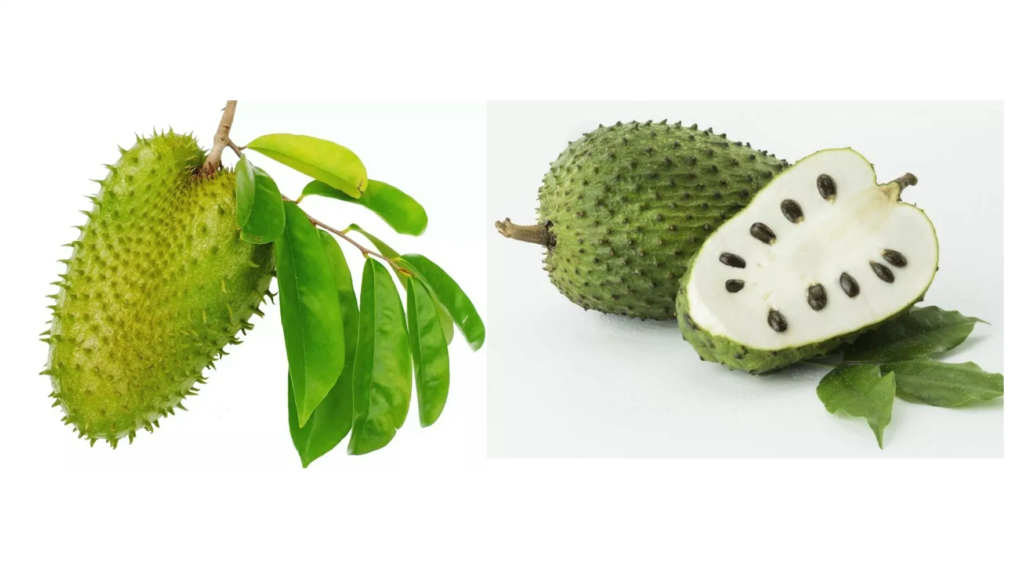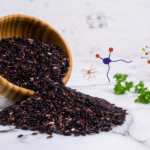Soursop (also called graviola, Annona muricata, or guanábana) is one of those fruits that seems almost too good to be true—a tropical delight with a flavor halfway between pineapple and strawberry and a laundry list of supposed health benefits. But ask any wellness junkie or scroll through alternative health forums, and you’ll see one jaw-dropping claim pop up again and again: “Soursop cures cancer.” Is this just internet hype, or is there a kernel of scientific truth behind the headlines? Get ready as we dig into the research, separate fact from fiction, and discover what soursop actually does for your health.
What Is Soursop?
Soursop is the spiky, green, heart-shaped fruit of a tree native to the Caribbean, South America, and parts of Africa and Asia. It’s been a staple in traditional medicine for centuries, celebrated not just for its unique flavor but also for its alleged healing powers.
Nutritional Profile: What’s Inside?
Soursop is more than just a tasty treat. It’s packed with:
- Vitamin C: Supports immunity and acts as a powerful antioxidant
- Fiber: Promotes healthy digestion and bowel regularity
- Potassium: Essential for heart health and blood pressure regulation
- Magnesium, iron, copper, and folate
It also contains unique phytochemicals like acetogenins, flavonoids, and tannins, all thought to be responsible for many of its medicinal effects.
Proven Health Benefits of Soursop
1. Antioxidant Powerhouse
Soursop is loaded with antioxidants such as vitamin C, quercetin, and ascorbic acid. These compounds help neutralize free radicals linked to aging, heart disease, and other chronic conditions. More antioxidants mean less oxidative stress—a major win for your cells.
2. Immune System Booster
Thanks to its sky-high vitamin C content (about 129 mg per fruit!), soursop helps crank up immune defenses. It supports the body in warding off colds, flus, and even some infections.
3. Anti-Inflammatory and Pain Relief
Soursop’s phytochemicals have been found to reduce markers of inflammation. Some traditional uses (and animal studies) suggest it may help soothe pain, arthritis, and muscle aches—though human trials are still limited.
4. Digestive Aid
A single soursop fruit boasts about 21 grams of fiber, nearly your entire daily requirement! That fiber helps promote regularity, prevent constipation, and feed your good gut bacteria.
5. Potential Blood Sugar and Blood Pressure Regulation
Emerging evidence suggests soursop may support pancreatic health and insulin production, making it a possible ally in controlling blood sugar and preventing diabetes. Its potassium content may help flush out sodium and regulate blood pressure, too.
6. Stress & Anxiety Relief
Some of the alkaloids in soursop leaves (like anonaine) have calming effects, which may help ease anxiety and stress.
The Cancer Question: Miracle Cure or Myth?
Here’s where things get controversial. Over the last decade, soursop has gone viral as a “natural cancer cure.” Dozens of articles claim it’s “10,000 times stronger than chemotherapy” or that it “kills malignant cells for 12 types of cancer.” But does the science back this up?
What the Research Really Says
Laboratory and Animal Studies
- In Vitro “Cell-Killing” Effects: Soursop extracts can, in laboratory settings, kill or inhibit the growth of cancer cells from breast, prostate, pancreatic, liver, lung, and colorectal cancers.
- Promising Compounds: Its star components, called acetogenins (especially annonacin), can induce apoptosis (cell death) in cancer cell lines and inhibit tumor growth in animals.
No Clinical Trials in Humans
- Despite compelling lab data, there are currently no peer-reviewed, published studies showing that soursop cures or treats cancer in humans. All available evidence comes from test tubes or animal models.
- Experts repeatedly warn: “There is no conclusive evidence that soursop is an effective treatment for cancer in humans”.
Mechanisms Studied
- Soursop extracts appear to target cancer cells by cutting off their adenosine triphosphate (ATP) supply, causing energy depletion and cell death.
- Some studies suggest soursop may enhance the efficacy of certain chemotherapy drugs on resistant cell lines in the lab.
- The effectiveness can vary dramatically based on the plant part, extraction method, and even the location where the soursop was grown.
Why The Hype? Interpreting the Claims
So, why do so many headlines still declare soursop a cancer cure?
- Test Tube Triumphs: Lab results often get prematurely amplified. When soursop kills cancer cells in a petri dish, it sounds impressive—but human biology is vastly more complex.
- Natural Health Marketing: “Stronger than chemo!” claims attract attention and sell products. These claims are not supported by clinical evidence.
- Traditional Medicine: Many cultures use soursop teas and tinctures for a range of illnesses, adding to its allure.
The Risks: Soursop Isn’t All Sunshine
Before you toss your medicine cabinet for a pile of soursop leaves, consider the potential downsides:
Neurotoxicity and Parkinsonism
- Soursop contains compounds (annonacin) that, in high amounts, have been linked to nerve damage and symptoms similar to Parkinson’s disease, especially in populations where soursop is consumed heavily and regularly.
- Leaves and stem teas seem particularly risky. If you have a history of neurological disorders, avoid soursop supplements.
Pregnancy and Breastfeeding
- Soursop may stimulate uterine contractions and can be harmful during pregnancy and lactation. It’s best to avoid soursop if you’re pregnant, trying to conceive, or breastfeeding.
Drug Interactions
- Soursop can interact with anticoagulants, antihypertensives, anti-diabetic drugs, and antidepressants, either enhancing or inhibiting their effects. Always speak with your doctor first!
Other Potential Side Effects
- Nausea, vomiting, low blood pressure, and movement disorders have all been associated with overuse.
When Can Soursop Be Beneficial?
- As a tasty, nutritious tropical fruit: Eat soursop for its high vitamin C, fiber, and antioxidant content.
- Digestive aid & immune support: Occasional consumption is likely safe and may have anti-inflammatory, anti-microbial, and anti-anxiety effects.
When Should You Avoid Soursop?
- If you have, or are at risk for, neurological disorders;
- If you’re pregnant, breastfeeding, or taking certain medications;
- If you’re considering it as a primary treatment for cancer—there’s no scientific support for this.
The Bottom Line: Superfruit with Limits
Soursop is an intriguing, antioxidant-rich fruit with fascinating properties. In the lab, its extracts can kill cancer cells, but that doesn’t mean it can cure cancer in real people. As of now, no reputable medical body recommends using soursop as a cancer treatment. At best, it is a promising area for further research; at worst, it comes with risks that can outweigh potential benefits, especially if it’s used to replace proven medical therapies.
Final Advice
- Enjoy soursop… responsibly! Eat the fruit as part of a balanced diet and savor its unique flavor and nutrients.
- Don’t rely on it as a treatment for serious illness. If you or someone you love is facing cancer, stick to evidence-based therapies and always consult your healthcare team.
- Always check with your doctor before adding new supplements, especially if you take medications or have underlying conditions.
Disclaimer: This article is for informational purposes only and is not a substitute for medical advice. Always talk to a qualified healthcare provider before making changes to your diet or cancer treatment plan.








